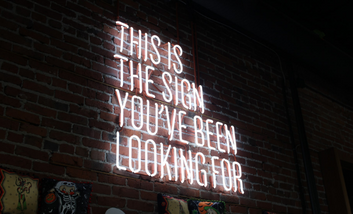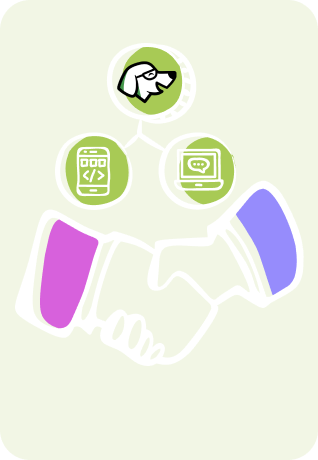Have you ever been interested in an app only to swear that it disappears from the Google Play Store one day?
Google and Apple govern their app stores with various rules, which can be tricky for developers to navigate.
They
can more or less remove or reject apps at their own discretion. If you’re a developer, understanding how these app stores function is key. If you want to build an app with a global audience, you have to be aware of some key things.
While Apple gets most of the hype in the US, if you want to build global success with your app, understanding the Google Play Store is far more important. Android has a global market share of nearly 73%.
So, let’s take a look at why apps get removed from the Google Play Store.
The Developer Chose To Remove It From the Google Play Store
In some cases, apps seem to vanish one day because the developer chose to remove them. This can be for a variety of reasons.
Some developers simply do not understand all the work that apps take when they start. Some people believe that once you create an app and get it up in the app store, your job is done.
This actually could not be further from the truth. For one, if you want people to find and use your app, marketing is key. On the other hand, app stores are constantly evolving, with different rules and requirements. This means that apps require regular updates for as long as they exist.
Due to these demands, some developers will release entirely new versions of apps and get rid of the old ones. Or, in some cases, they let the app fall out of date and be deleted.
The Famous Case of Flappy Bird
You probably remember the Flappy Bird craze of 2013 and 2014. It was so big that at its peak, Vietnam-based indie game developer and Flappy Bird creator Dong Nguyen was making about $50,000 a day.
However, the game was so addictive that Nguyen felt bad for creating it. He couldn’t handle the high visibility and fame which came with his viral game either.
People around the world were hurling online abuse at Nguyen. Due to all this, he actually deleted it less than a year after its debut.
Abusing Android Permissions
Every app on a phone needs permission to run and execute certain actions. However, some apps need more permission than others. You have likely encountered this before. It includes things like Zoom asking if it can access your microphone and camera.
A legitimate app will not only ask for permission clearly but let you know exactly why it needs you to enable certain things.
In today’s world, scam apps are actually a huge problem.
However, one big red flag users can look out for is apps that ask for all kinds of permissions that don’t make sense. These apps are usually designed to do things like secretly harvest data, record audio, and more.
For example, if you download a simple calculator app and it wants access to your phone’s camera, microphone, and contacts, that is a sign that it is a malicious app.
Also, many scam apps will not allow you to use them at all unless you log in with social media accounts. This is because they want that data for nefarious purposes.
Google Takes Action to Improve the Google Play Store
Unfortunately, many malicious developers take advantage of users. It is much easier to do than many people think.
Raise your hand if you have ever accepted the terms and conditions of a program or app without reading them. Over 90% of people just click accept or yes without reading.
Many people think that everything they download from an app store is legtimate. They are also so used to accepting digital agreements without reading that they don’t pick up on the red flags presented by malicious apps.
The fact that App stores are plagued with scam apps taking millions from users achieved mainstream news attention over the past several years. As a result, Apple and Google got to work trying to fix the issue.
As a result, Google has removed hundreds of thousands of apps that abuse Android’s permissions to take advantage of users.
However, more seem to pop up all the time.
Copyright Infringement In The Google Play Store
In some cases, this can be more sinister than you realize. While it is generally frowned upon to steal other people’s ideas, this can get a little vague when it comes to apps.
After all, don’t all dating apps basically do the same thing? Or calculator apps. How about budgeting apps? Or food delivery apps.
For this reason, intellectual property generally relates more to specific branding, for example, things like “Mario.”
However, where this gets especially hairy is when malicious developers create copies of popular apps to try and scam users.
Regardless of whether an app is created in good faith or not, it is not legal to infringe on someone else’s intellectual property.
What Can Companies Do About It?
If you log into the app store right now and type in a well-known brand, like “LEGO,” for example, you will see dozens of apps related to it from unrelated developers.
While Google should catch these apps during the submission process, sometimes things slip through the cracks.
Also, larger companies like this may have so much going on that they do not catch all of the imposters right away.
If you feel that your app has been the victim of this, Google recommends that you reach out to the other company first to resolve the issue.
If that does not work, Google offers a trademark complaint form.
The Minefield of Global Government Regulation

If you want an app with a global presence, this is something you need to have in mind. Laws can even vary pretty harshly between different US states. For example, while marijuana is legal in some, it is not in others.
Internationally, this is a whole other issue. Governments can force Google or Developers to pull apps from the Google Play Store.
For example, Austria banned a number of apps for violating its gambling laws. Many Middle Eastern countries have a history of banning messenger and chat apps on and off as well.
Trump also signed a sweeping executive order banning about half a dozen Chinese apps in the US during his presidency. Currently, under the Biden administration, politicians are working to ban TikTok.
What Developers Should Consider
There are so many different cultures, norms, and laws globally that this is something developers definitely should keep in mind.
You can’t build a global app empire if what you are offering is illegal in some places. Remember, just because something is normal or legal for you, doesn’t mean that it is in every country.
Especially for small developers, fighting with a foreign government just doesn’t make sense. In these cases, most just accept that their app will be removed.
In the case of TikTok in the US, Meta has spent large sums to sway government officials to remove it and TikTok owner ByteDance has spent hundreds of thousands of dollars trying to lobby the US government in favor of their app.
Small developers really just do not have this kind of money. They can’t take on world governments.
Final Thoughts on Why Apps Disappear from the Google Play Store
Not all apps are removed from the Google Play Store for nefarious reasons.
Sometimes it can be a simple mistake, an app being considered outdated, a copyright issue, a misunderstanding, or even a question of politics.
Maybe the developer chose to remove the app themselves with no pressure from the Google Play Store, or legal issues at all.
If a business closes, for example, its app will probably be removed as well.
What do you think? Comment below.
Since 2009, we have helped create 350+ next-generation apps for startups, Fortune 500s, growing businesses, and non-profits from around the globe. Think Partner, Not Agency.
Find us on social at #MakeItApp’n®

















